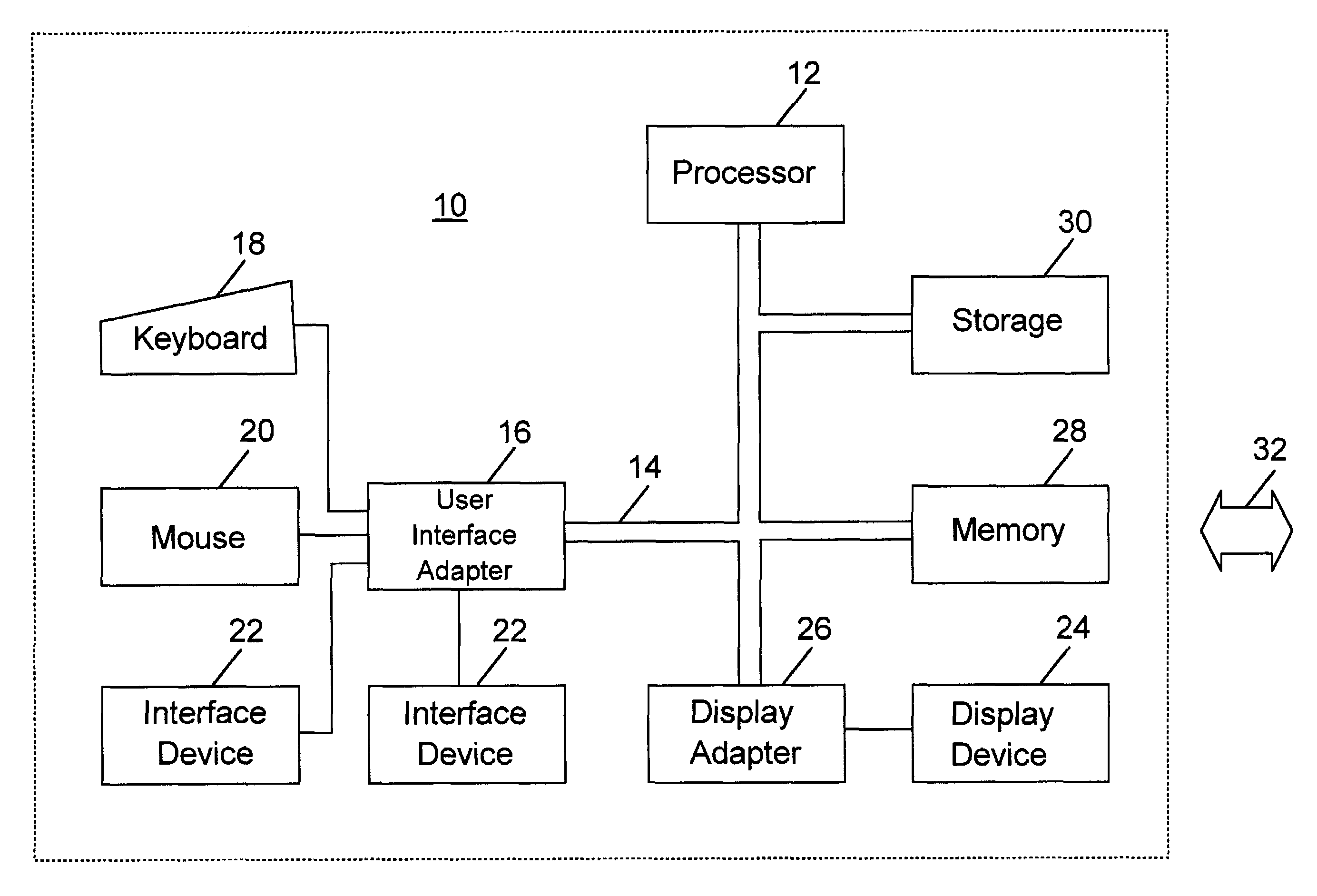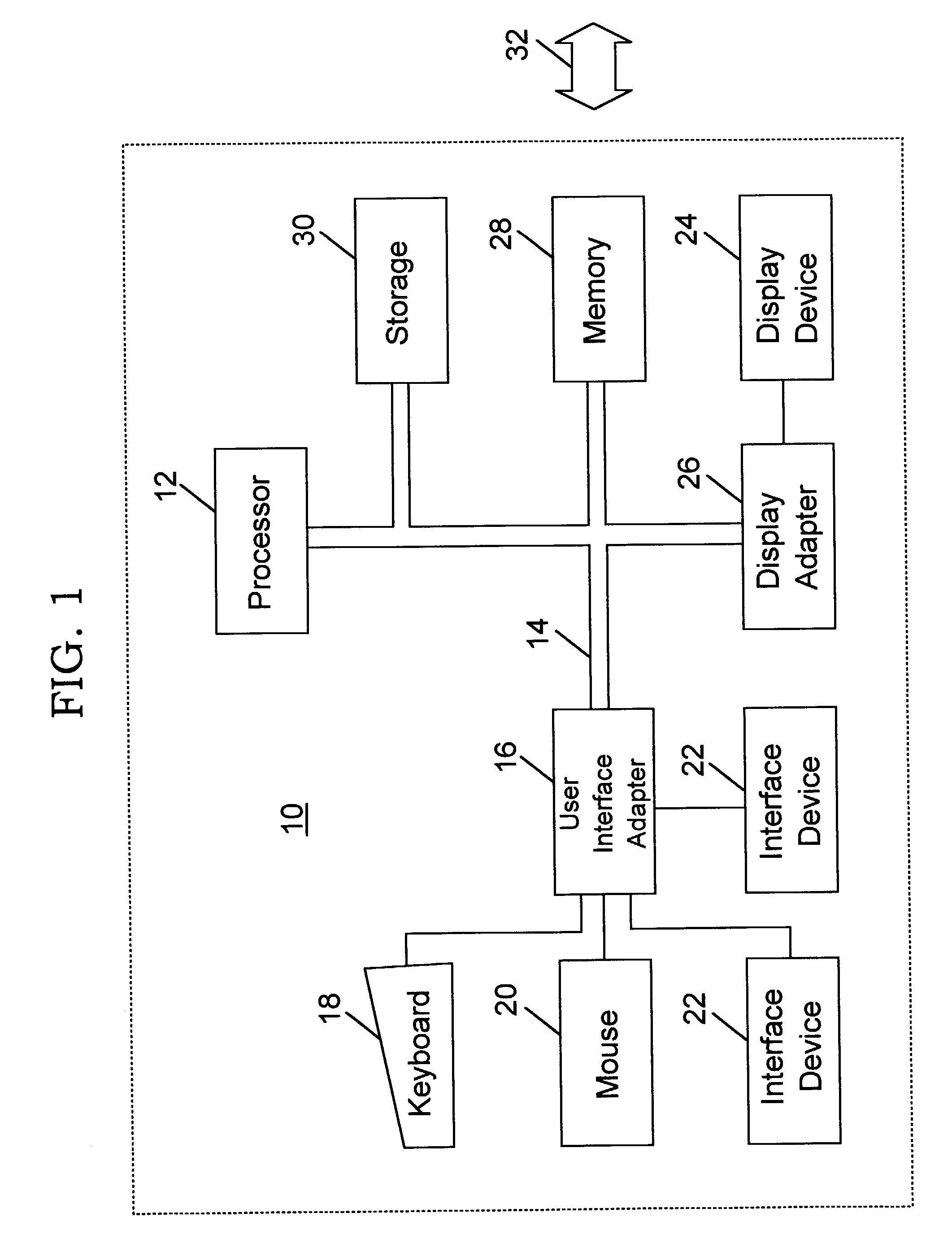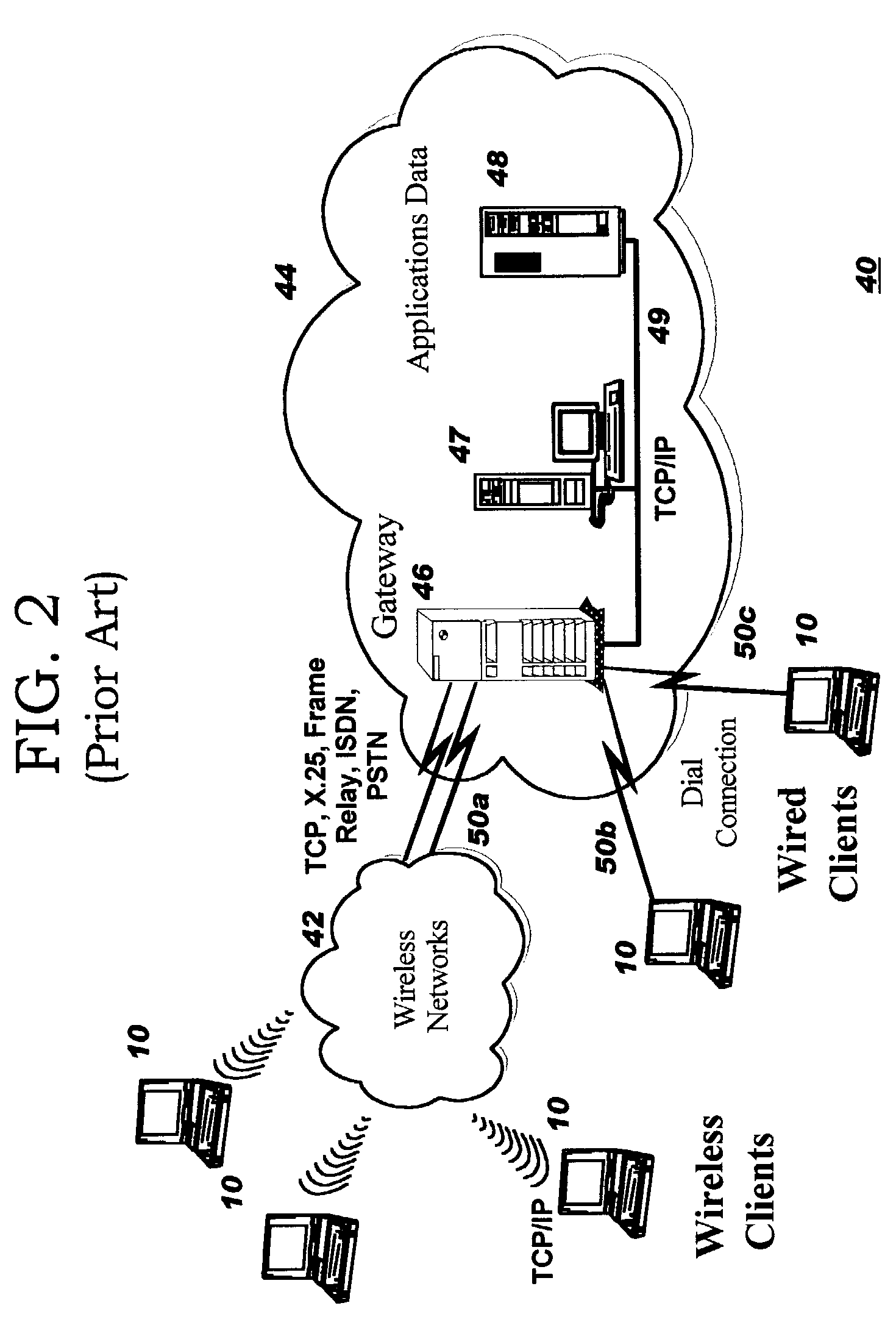Meta editor for structured documents
a structured document and meta editor technology, applied in the field of computer software, can solve the problems of putting the application in an unstable state, affecting the efficiency of the system, so as to achieve cost-effective effects
- Summary
- Abstract
- Description
- Claims
- Application Information
AI Technical Summary
Benefits of technology
Problems solved by technology
Method used
Image
Examples
Embodiment Construction
[0048]FIG. 1 illustrates a representative workstation hardware environment in which the present invention may be practiced. The environment of FIG. 1 comprises a representative single user computer workstation 10, such as a personal computer, including related peripheral devices. The workstation 10 includes a microprocessor 12 and a bus 14 employed to connect and enable communication between the microprocessor 12 and the components of the workstation 10 in accordance with known techniques. The workstation 10 typically includes a user interface adapter 16, which connects the microprocessor 12 via the bus 14 to one or more interface devices, such as a keyboard 18, mouse 20, and / or other interface devices 22, which can be any user interface device, such as a touch sensitive screen, digitized entry pad, etc. The bus 14 also connects a display device 24, such as an LCD screen or monitor, to the microprocessor 12 via a display adapter 26. The bus 14 also connects the microprocessor 12 to ...
PUM
 Login to View More
Login to View More Abstract
Description
Claims
Application Information
 Login to View More
Login to View More - R&D
- Intellectual Property
- Life Sciences
- Materials
- Tech Scout
- Unparalleled Data Quality
- Higher Quality Content
- 60% Fewer Hallucinations
Browse by: Latest US Patents, China's latest patents, Technical Efficacy Thesaurus, Application Domain, Technology Topic, Popular Technical Reports.
© 2025 PatSnap. All rights reserved.Legal|Privacy policy|Modern Slavery Act Transparency Statement|Sitemap|About US| Contact US: help@patsnap.com



